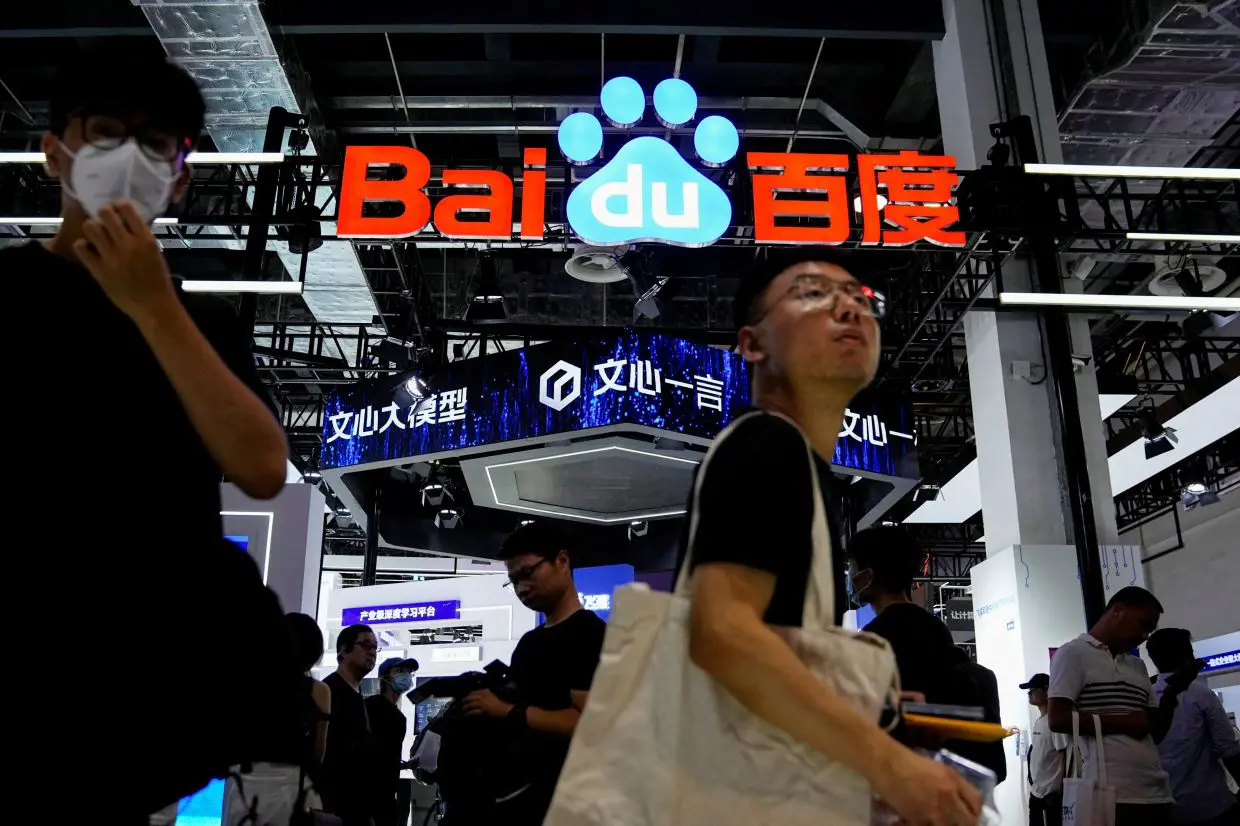
Baidu Inc., a Chinese pioneer in artificial intelligence, reported a 3% decline in revenue for the third quarter, marking its steepest drop in over two years. The company attributed the slump to China’s faltering economy, which has impacted advertising budgets and consumer spending. Revenue for the quarter stood at 33.6 billion yuan (US$4.6 billion), aligning with analyst expectations, while net income reached 7.6 billion yuan. Shares of Baidu fell by more than 3% in pre-market U.S. trading following the announcement.
The company’s generative AI model, Ernie, processes 1.5 billion daily queries and is central to Baidu’s AI-first growth strategy. However, the model lags behind ByteDance’s Doubao chatbot in usage within China, and Baidu’s core business continues to lose users to newer platforms such as Xiaohongshu and Douyin. Despite Ernie AI products contributing to 11% of Baidu’s cloud revenue in Q3, overall growth slowed due to fierce competition among AI infrastructure providers.
Robotaxi Expansion and AI Innovations
Amid these challenges, Baidu is advancing its broader AI initiatives. The company announced that its Apollo Go driverless taxis, featuring fully autonomous vehicles, now operate in multiple cities, with 70% of its robotaxi rides conducted without safety personnel. Baidu’s efforts in autonomous driving underscore its commitment to maintaining a competitive edge in emerging AI applications.
In a bid to capture more market share, Baidu recently unveiled new tools for Ernie users at its annual product event in Shanghai. Founder Robin Li emphasized the company’s long-term confidence in its AI-centric strategy. Li also introduced AI smart glasses, expected to compete with Meta’s Ray-Bans, which will launch in early 2025. While stopping short of releasing a more powerful Ernie version, Baidu hinted at its arrival next year, along with plans for AI agents designed to simplify user tasks.
Economic Pressure and Industry Competition
Baidu’s CFO Luo Rong, transitioning to lead the company’s mobile ecosystem, cited subdued consumer and advertiser spending as key challenges, with no immediate signs of recovery. Competitors Tencent and Alibaba have noted marginal economic improvements but have avoided offering timelines for a broader rebound.
Baidu’s challenges extend beyond economic pressures to an intensifying price war among AI providers, vying for developer and startup customers. Despite these headwinds, Li reiterated the company’s belief in its strategic direction, stating, “We remain steadfast in our AI-focused strategy and are confident in our long-term trajectory.”
Baidu also remains a contender in the race to partner with Apple for AI integration in future iPhones, potentially marking a milestone in its AI endeavors. However, the company’s ability to navigate competitive pressures and economic challenges will likely determine its trajectory in the coming quarters.
Featured image courtesy of The Star
Follow us for more updates on Baidu’s revenue.
